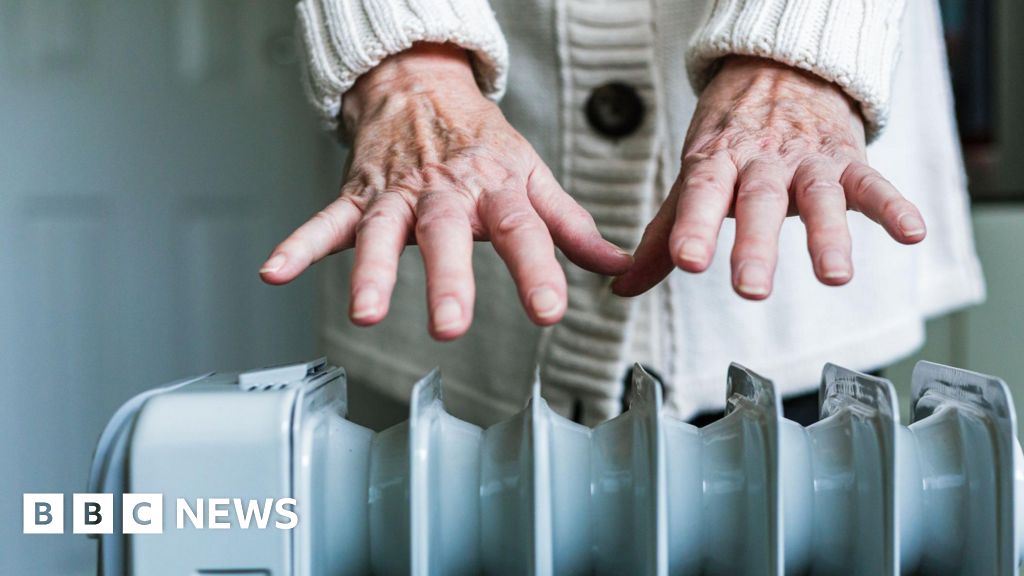Citizens’ Advice is bracing itself for a “really difficult” winter ahead of the scrapping of winter fuel payments for 10 million pensioners, the charity’s boss says.
From next month, those not on pension credit or other means-tested benefits will no longer get the annual payments, worth between £100 and £300.
Dame Clare Moriarty, who will attend a government meeting with energy firms to discuss the issue on Wednesday, told the BBC there should be better targeted support for those with the highest needs and the lowest incomes.
The prime minister has defended the decision to scrap winter fuel payments, saying it was needed to repair what he claims is a £22bn “hole” in the public finances.
In a speech on Tuesday, Sir Keir Starmer said he had to be honest that “things [would] get worse before they [got] better” when it came to public spending.
The meeting to discuss how to help those struggling with energy bills was called last week by Energy Consumers Minister Miatta Fahnbulleh after it was announced the energy price cap would rise from October.
Regulator Ofgem has said gas and electricity prices will rise by 10% in England, Scotland and Wales under the new energy price cap, with the typical annual dual-fuel bill paid by direct debit to be £1,717 per year.
Ofgem, trade association Energy UK and Citizens Advice have also been invited to attend.
Ms Fahnbulleh said that together they would “help households in energy debt and take proactive steps to stop others from falling into it”.
Dame Clare said: “Winter fuel payment will still be paid to people receiving pension credit, and that’s actually one of the most underclaimed benefits there is, so 1.4 million people receive pension credit and there’s nearly another 900,000 people who could.
“It’s really important to see better support so that people do access it.”
She said people had until 21 December to apply for pension credit and still receive the winter fuel payment if successful.
However, there are concerns the government’s decision to stop the payments for everyone could create a public health emergency.
She said she recognised the government “had inherited a big problem” but “it needs action now”.
She called for a “social tariff” – discounted bills with those least able to afford them.
And she said energy suppliers “need to step up to their responsibilities on energy efficiency and on payment plans for those who are struggling”.
Simon Francis, co-ordinator of the End Fuel Poverty Coalition said: “In real terms, the changes this winter mean that some older people will face the highest energy bills on record.
“The impact of living in cold, damp homes is particularly harsh on those older people with a disability, a long-term health condition or with poor mental health.”
The charity Age UK says it believes “as many as two million pensioners who find paying their energy bills a real stretch will be seriously hit by this cut” and have launched a petition calling for a government U-turn.
The Conservatives have also urged Labour to back down on the decision and are seeking to challenge the policy change in the House of Commons.
Addressing the decision in his speech on Tuesday, the prime minister said he “didn’t want to means-test the winter fuel payment but it was a choice we had to take”.
He again referred to the £22bn black hole in this year’s spending plans.
However, Paul Johnson of the Institute for Fiscal Studies has previously said “half of [the] spending ‘hole’ is public pay over which government made a choice and where pressures were known”. For example, £9bn of that came from government agreeing higher pay awards to the public sector.
Wednesday’s meeting follows the publication of a new report that has found that the reduction of people in fuel poverty has “flatlined” in the past few years.
“There has been a stalling of progress,” said Caroline Flint, chair of the Committee on Fuel Poverty, which advises the government.
Ms Flint said that while the war in Ukraine and the Covid pandemic had “obscured the lack of material progress” being made in fuel poverty reduction, the committee had hoped more progress would have been made on its 2023 recommendations.
These included improving the affordability of bills through fairer pricing and creating a “robust” fuel poverty strategy.
Ms Flint added that without a change in government policy, a drop in fuel poverty levels was unlikely in the near future.
